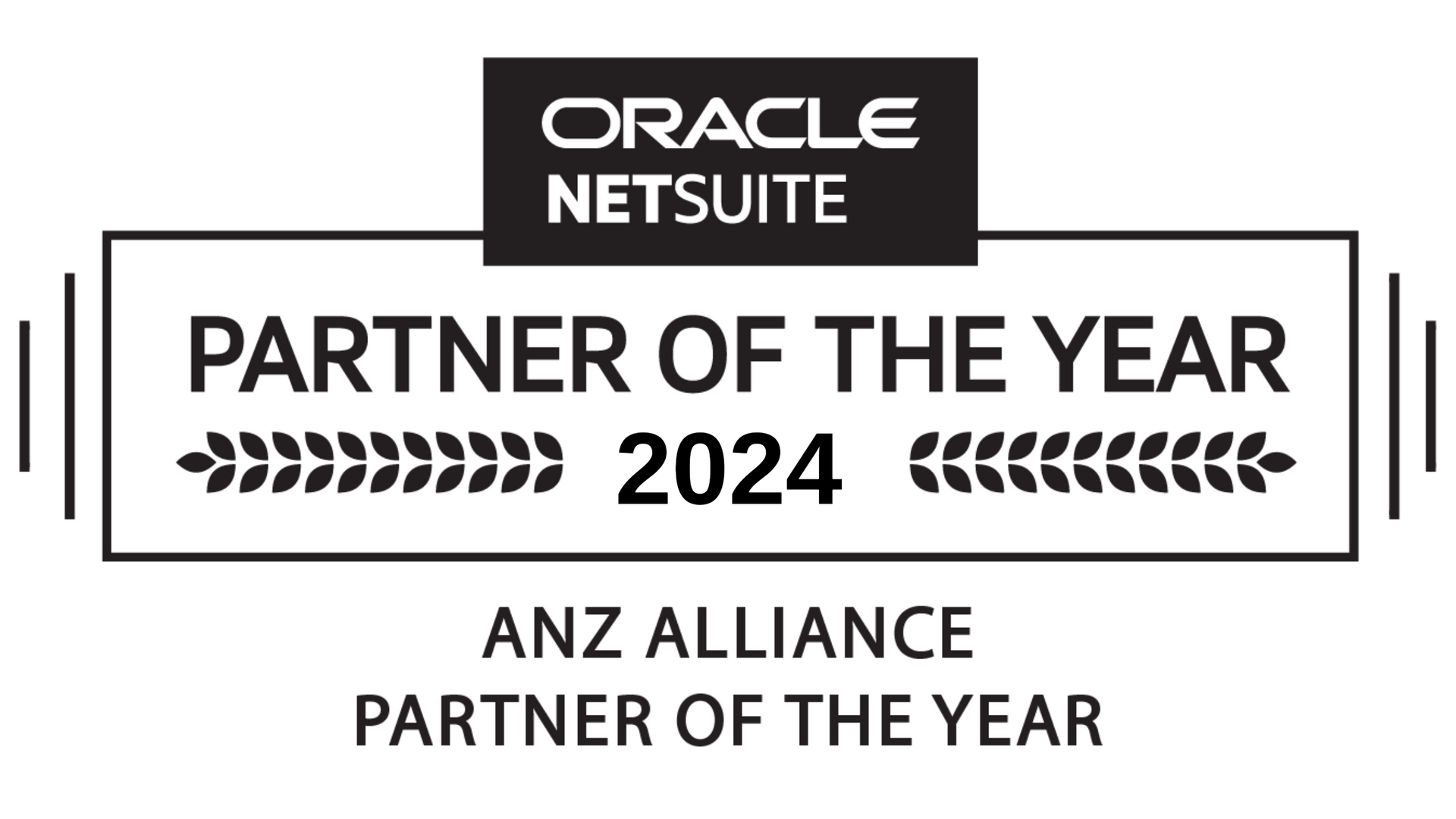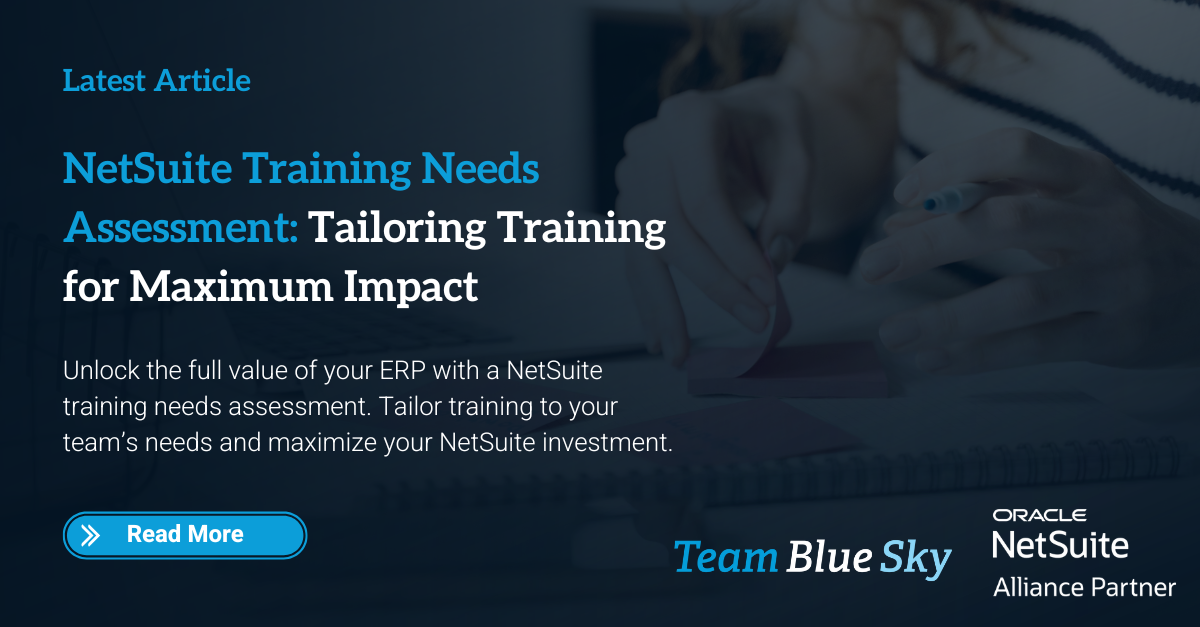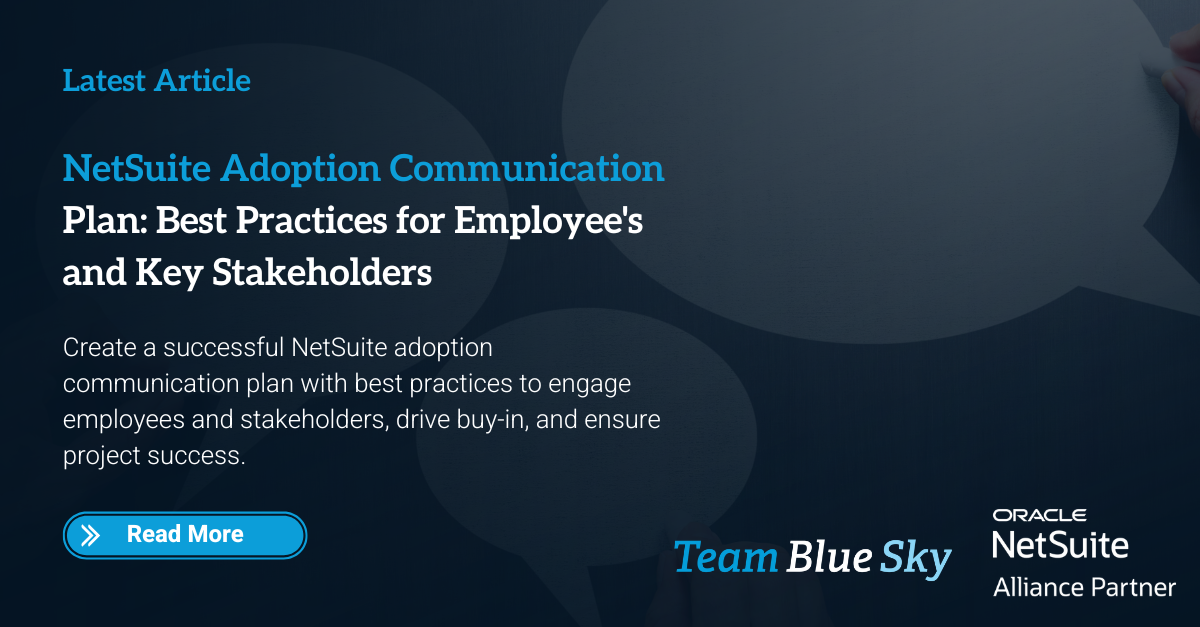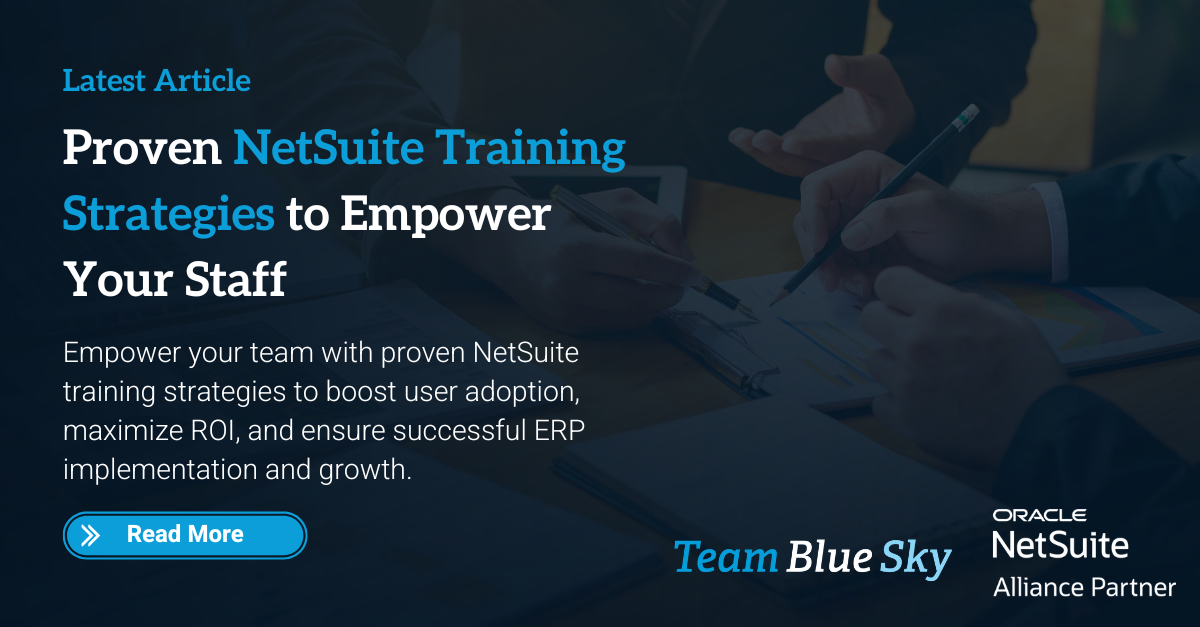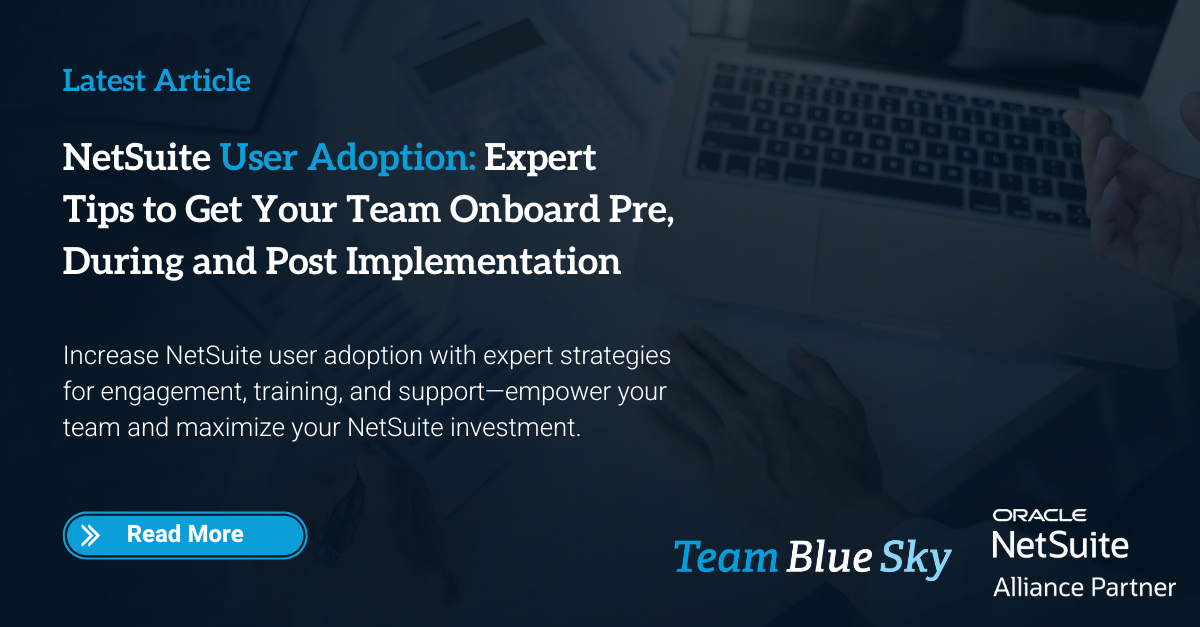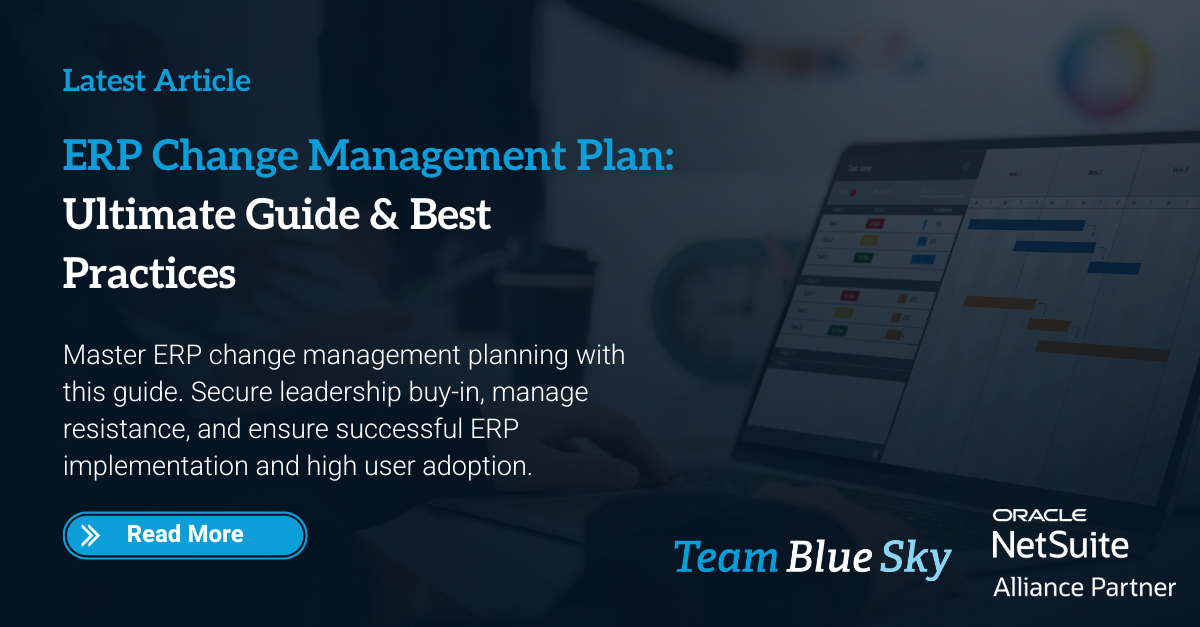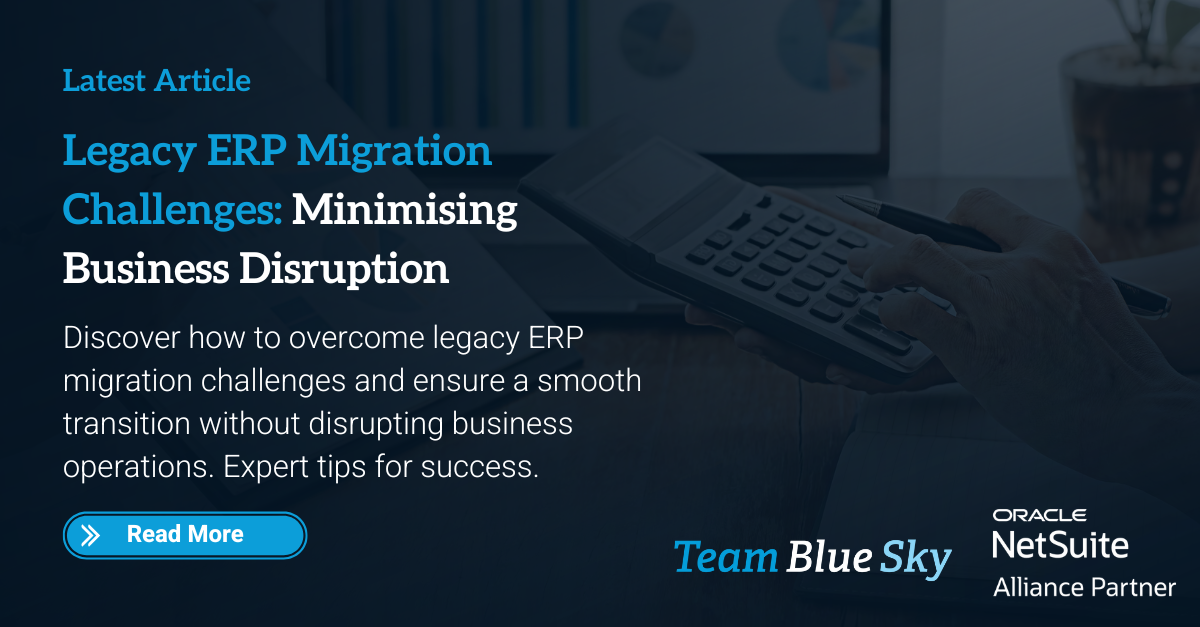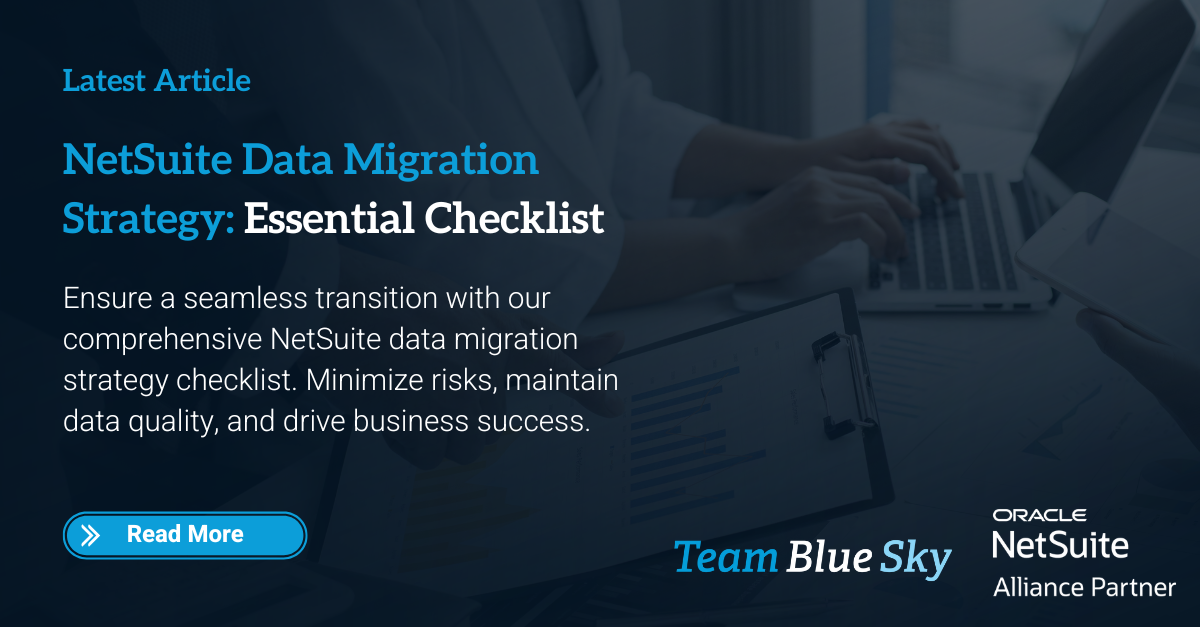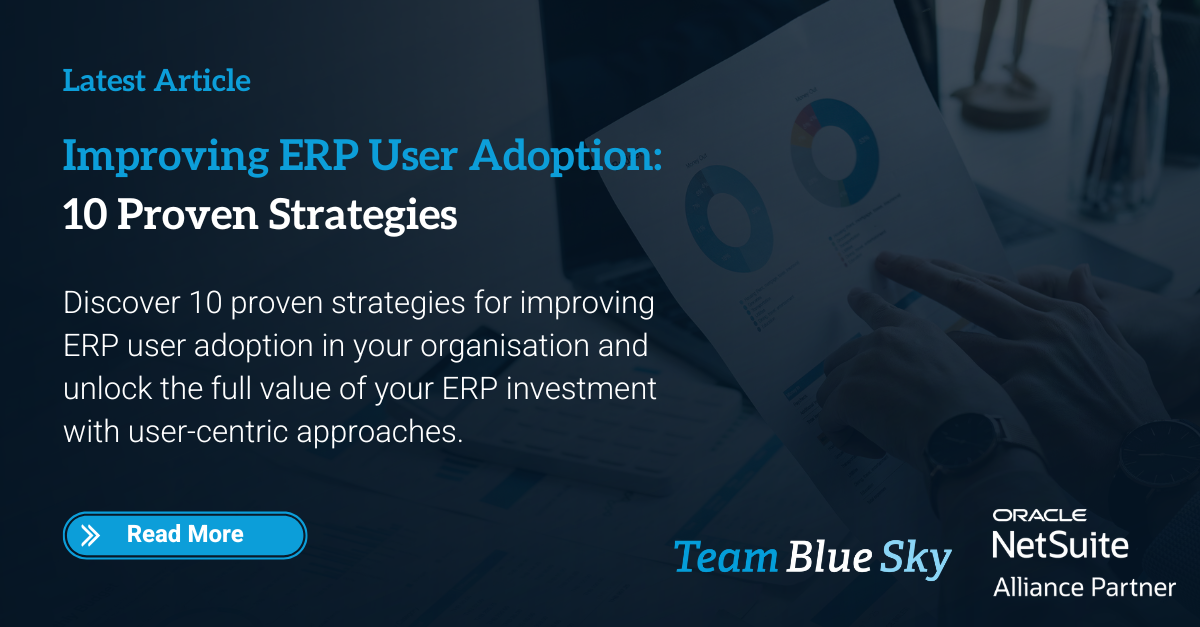Unlocking the Power of NetSuite Customisation: Tips and Best Practices for Developers
NetSuite is a cloud-based ERP system that provides customisation capabilities for businesses to adapt the software to their specific requirements. Utilising the platform's full potential requires experienced developers who have a deep understanding of NetSuite’s intricacies and customisation tools.
This article will provide tips and best practices for developers to maximise the effectiveness of
NetSuite customisation. It will cover key components of the NetSuite development ecosystem, such as SuiteScript, SuiteFlow, SuiteBuilder and SuiteTalk, and offer insights on leveraging these tools to their fullest potential.
Understanding the NetSuite Development Ecosystem
Before diving into specific customisation tools, it's essential to understand the broader NetSuite development ecosystem. NetSuite provides customisation tools for developers to personalise the software according to their business requirements. These tools include SuiteScript, SuiteFlow, SuiteBuilder, and SuiteTalk.
SuiteScript
SuiteScript is NetSuite's scripting language that allows developers to automate processes, create custom workflows, and extend NetSuite's functionality.
SuiteFlow
SuiteFlow is a drag-and-drop workflow tool that enables developers to design and implement custom business processes.
SuiteBuilder
SuiteBuilder is a visual interface for customising NetSuite's forms, fields, and records.
SuiteTalk
SuiteTalk is NetSuite's web services platform for integrating external systems.
To fully utilise the customisation tools of NetSuite, it is crucial to stay informed about its evolving ecosystem. NetSuite updates their software regularly, and developers must be aware of these changes to ensure the continued optimal functionality of their previously built customisations.
Mastering SuiteScript
SuiteScript is a powerful tool that enables developers to automate processes, extend NetSuite's functionality, and create custom workflows. However, writing efficient and maintainable SuiteScript code requires skill and expertise.
To write efficient SuiteScript code, developers should follow best practices such as using descriptive variable names, avoiding global variables, and implementing error handling. Additionally, it's crucial to thoroughly test and debug SuiteScript code to ensure it functions as intended.
Common SuiteScript pitfalls to avoid:
When working with SuiteScript, it's essential to be aware of common pitfalls to avoid to ensure the smooth functioning of your code. Here are some common SuiteScript pitfalls that you should be aware of:
- Excessive Loops: One of the most common SuiteScript pitfalls is the overuse of loops. Large data sets can slow down your script's performance, causing issues with record processing times. To avoid this, you can consider breaking your code into smaller chunks or batches and optimising your loops using filters or indexes.
- Failing to Use Appropriate Record-Locking Mechanisms: Another common pitfall is failing to use appropriate record-locking mechanisms when updating records. This can lead to data inconsistencies, which can be challenging to troubleshoot. To avoid this, you can use the "Lock Record" API to ensure that a record is locked while it's being updated, preventing other users from modifying the same record simultaneously.
- Need to Handle Errors Correctly: Finally, it's crucial to handle errors correctly when writing SuiteScript. Failing to handle errors correctly can lead to unexpected behavior or even system crashes. To avoid this, you can use try-catch statements to handle errors, log errors to the system notes or console, and provide users with appropriate error messages.
Leveraging SuiteFlow for Process Automation
SuiteFlow is a drag-and-drop workflow tool that enables developers to design and implement custom business processes. When deciding whether to use SuiteFlow or SuiteScript, developers should consider the complexity of the process and the level of customisation required.
When creating workflows, following established guidelines, utilising straightforward workflows, refraining from nested conditions, and assigning descriptive labels to workflow states and actions, are very important. Additionally, developers must conduct comprehensive testing and problem-solving to guarantee efficient and optimal workflow performance before launch
Common SuiteFlow pitfalls to avoid:
- Overcomplicating Workflows: One of the most common pitfalls when working with SuiteFlow is overcomplicating workflows. This can lead to confusion, inefficiency, and errors. To avoid this, it's important to keep your workflows simple and straightforward, focusing only on essential business processes.
- Not Understanding the Trigger Types: Another common pitfall is not understanding the trigger types in SuiteFlow. Depending on the trigger type you choose, you may be limiting the types of events that can initiate your workflow. To avoid this, it's important to understand the different trigger types and choose the one that best fits your business process.
- Not Testing Your Workflows: Finally, it's crucial to thoroughly test your workflows before deploying them to your production environment. Failing to test your workflows can lead to errors and unexpected results. To avoid this, you can use NetSuite's Sandbox environment to test your workflows and ensure that they function as expected.
Harnessing SuiteBuilder for Customisation
SuiteBuilder is a visual interface for customising NetSuite's forms, fields, and records. To create effective customisations with SuiteBuilder, developers should follow best practices such as using meaningful field names, organising areas logically, and limiting the use of custom fields where possible.
Managing access and permissions for customisations is also critical. Developers should ensure that customisations are only visible and accessible to the users who need them. Additionally, establish guidelines for maintaining and updating customisations to ensure they remain relevant and practical.
Common SuiteBuilder pitfalls to avoid:
- Not Documenting Your Customisations: Another common SuiteBuilder pitfall is not documenting your customisations adequately. Proper documentation is crucial, especially for complex customisations, as it can help you or other team members troubleshoot any issues that may arise. To avoid this pitfall, be sure to document your customisations thoroughly, including any assumptions or dependencies.
- Using Inefficient Workflows: Using inefficient workflows is another common SuiteBuilder pitfall. This can result in slow performance and poor user experience, as well as increased cost due to excessive usage of resources. To avoid this pitfall, optimise your workflows by minimising unnecessary steps and automating repetitive tasks.
- Not Considering the Future Impact of Customisations: Customisations can become outdated or incompatible with future updates to NetSuite. Failing to consider the future impact of your customisations can result in unexpected issues down the line. To avoid this pitfall, plan ahead and consider how your customisations may need to be adjusted in the future as NetSuite evolves.
Maximising SuiteTalk for Integration
SuiteTalk is a web services platform offered by NetSuite, which permits developers to integrate external systems with NetSuite. Developers should adhere to best practices like encrypting sensitive data, implementing proper authentication mechanisms, and using secure connections to ensure dependable and secure data exchange.
Monitoring and troubleshooting integration issues are also critical, and developers should establish procedures for monitoring data exchanges and promptly addressing errors or problems. By proactively monitoring and addressing integration issues, developers can ensure that their customisations function optimally and meet the needs of the business.
- Not Understanding the Available Web Services: One of the most common SuiteTalk pitfalls is not understanding the available web services. NetSuite offers a wide range of web services, each with its own functionality and purpose. To avoid this pitfall, it's important to understand the available web services and choose the one that best fits your integration needs.
- Poor Error Handling: Another common SuiteTalk pitfall is poor error handling. Failing to handle errors correctly can lead to unexpected behavior or even system crashes. To avoid this, it's important to use appropriate error handling techniques, such as try-catch statements and logging, to ensure that errors are handled correctly.
- Poor Performance: Finally, SuiteTalk performance issues can be a common pitfall. This can be caused by a variety of factors, such as inefficient code or large data sets. To avoid this pitfall, it's important to optimise your SuiteTalk code and ensure that you are only retrieving the data you need.
Keys to Success as a NetSuite Developer
Collaborating with Stakeholders
For NetSuite Developers collaborating with stakeholders is crucial for successful outcomes. Effective communication with project teams and clients is vital for understanding needs, managing expectations, and delivering quality solutions.
NetSuite Developers should establish clear communication channels to ensure effective stakeholder collaboration, conduct regular check-ins, and provide progress updates. Listening to feedback actively and adjusting the project as necessary to meet the needs of the business are crucial factors.
Continuing Education and Growth
Ongoing education to remain up-to-date with advancements and trends in the constantly evolving world of NetSuite development is a critical key to success. There are various certifications and training opportunities provided by NetSuite for developers to take advantage of.
Similarly, participating in NetSuite developer communities offers opportunities for support and collaboration. Interacting with fellow developers allows individuals to exchange knowledge, address challenges, and acquire knowledge on innovative techniques and methodologies.
Conclusion
NetSuite's customisation capabilities offer a significant advantage for businesses looking to maximise the benefits of their ERP system. However, it's crucial to have skilled developers who understand the platform's intricacies and can utilise its customisation functionality effectively.
By avoiding common pitfalls in customisation tools like SuiteBuilder, SuiteFlow, SuiteScript, and SuiteTalk, you can ensure that your NetSuite instance is tailored to meet your unique business requirements and performs optimally. With careful planning, testing, and execution, NetSuite customisation can help you streamline your business operations, increase efficiency, and improve your overall performance.
Interested in becoming a NetSuite Developer? Read more about in our article
Becoming a NetSuite Developer: A Guide to Getting Started

Henry Sack
General Manager

With over 12 years of experience as a NetSuite implementation consultant, Henry Sack leads TeamBlueSky’s team of NetSuite and accounting experts in his role of General Manager.
TeamBlueSky is a leading Australian
NetSuite Alliance Partner whose mission is to provide critical
NetSuite BPO and
Payroll services to NetSuite clients who are wanting to simplify their
back office processes and partner with a leading
NetSuite administration expert.
TeamBlueSky have also partnered with global Suite Developer Network partners to offer local solutioning, implementation and support services for global NetSuite SuiteApps.



